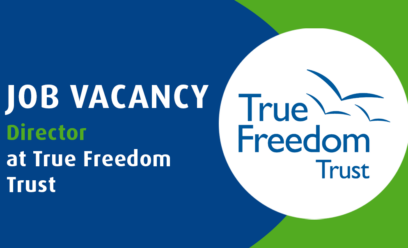Taking risks for the cause of God

Are you a risk taker or a risk avoider – risk inclined or risk averse?
Sometimes the state decides that we need to be prevented from taking risks to protect ourselves and others from harm. So they put up a safety rail or impose a speed limit, or control access to certain drugs. But most of us take calculated risks every day, as we cross the road, as we catch a plane or eat food that might not be very good for us. Consciously or not, we decide that some risks are worth taking.
We are living through a time of lockdown when the state has taken unprecedented control of our lives, seeking to reduce the risk of Covid-19 infection by confining us to our homes. In the main we have willingly complied with the restrictions, trusting the state to know what is best for us.
But now, as the prospect of coming out of lockdown appears on the horizon, how will we handle the risks involved in doing so? For most of the population the possibility of dying this year has hardly increased, with or without Covid-19. The dial has not appreciably flickered and yet for most of us it feels like the world has become a much more dangerous place.
In a way that is good. To recognise that we are mortal should lead everyone to prepare for the afterlife and, for Christians, to appreciate more the gift of eternal life that is ours in Jesus.
But I wonder if we will have lost the ability to handle risk.
Christians are not to be reckless with their lives. However, we might question certain aspects of the government’s strategy. There is an argument for saying that the lockdown has not really solved the virus problem, but just flattened the curve. So now the authorities should provide people with the information they need in order to choose for themselves how to handle the risks of coming out of lockdown (deciding whether to self-isolate etc).
But the counter-argument is that the cost of giving such freedom will be too high – in terms of more pressure on health workers, and more people infected and lives lost (including those on the front line of the NHS and care homes). As Christians we value human life so we don’t want to recklessly endanger our lives or those of others. When tempted by Satan (Matthew 4:5-7) Jesus refused to put God to the test. Neither should we, as it were, “jump from a great height” and expect God to rescue us – and others.
However, risk is part of life and cannot be completely eliminated. And beyond the normal experience of living in a world of risky outcomes, there is good, faith-filled risk taking. We value our lives but that does not mean we live in constant fear of death. Rather, we trust that God is in control and he is good. Of all people we should act responsibly, especially with respect to the wellbeing of other people. But, after seeking wisdom and taking good advice, we go forward in confidence, trusting the Lord to preserve us in this life until the day he takes us home to be with him.
We want to be those who show that we do not fear a virus that can destroy the body, but we fear God, “the one who can destroy both soul and body in hell”, to use Jesus’ powerful words in Matthew 10:28. Therefore we will take risks to serve others and take risks sometimes with our own lives to preach the gospel; we will take risks with our reputation and with our money.
Remember Queen Esther in the Old Testament. She had to talk to the powerful Persian king Xerxes on behalf of God’s people. He could have had her executed in a moment, but she asked people to pray for her and she took the risk, realising what was at stake, saying “I will go to the king, even though it is against the law. And if I perish, I perish.”
In a world of uncertain outcomes Christians consciously take action which could result in their loss, injury or even death for the cause of God, trusting God’s love and goodness in all circumstances. In the words of Romans 8:31-39 we risk trouble, hardship, persecution, famine, shame, danger and the sword because we know the ultimately nothing can separate us from the love of God that is in Christ Jesus.
Graham Nicholls is Director of Affinity
Stay connected with our monthly update
Sign up to receive the latest news from Affinity and our members, delivered straight to your inbox once a month.



